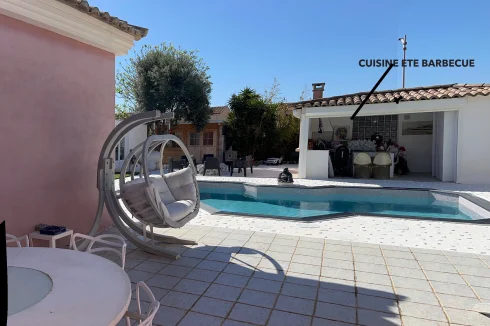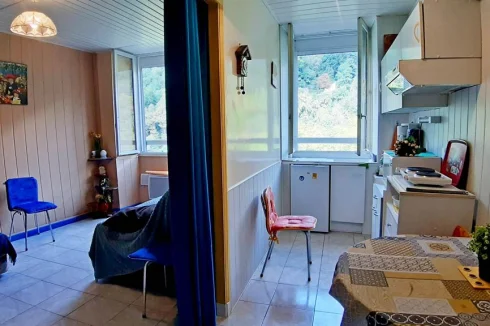EU Review Threatens Low-Cost Travel to France
Tuesday 08 October 2013
The future of low-cost travel to France is under threat, as the European Commission proposes to tighten the rules on public subsidies to airports and airlines.
Under the proposed guidelines, State support for airport infrastructure will be reined in and support towards the operating costs of airlines largely phased out over a 10 year period.
Larger airports will cease to be eligible for infrastructure aid, and smaller airports with under a million passengers will only be entitled to support if they can pass a catchment area test; aid will only be permitted provided the airport lies outside of 100 kilometres or 60 minutes travelling time from an existing airport.
Direct support to airlines for new routes at smaller airports will continue to be available, but only up to a maximum of 50% of the start-up costs and for up to 2 years duration. It will also be conditional on a business plan that clearly demonstrates the route would be profitable for the airline at the end of this period.
Although the Commission has stated they are not questioning the role of the low-cost carriers, which they say has “brought extremely important benefits to passengers, enabling millions of Europeans to travel cheaply”, it is clear the new restrictions strike at the heart of the business model that has been successfully adopted by some of these airlines, notably Ryanair.
Most of the agreements reached between Ryanair and the regional airports in France would fall foul of one or both of the new tests, as they provide for substantial and exclusive long-term preferential landing, parking, baggage handling and passenger charging rates, as well as funding for marketing the routes.
Other low-cost airlines do not necessarily have the same arrangements. Easyjet told us they "welcome any move to reduce state aid as the airline has long campaigned against it". However, the company have few routes from the UK to France and make no great use of French regional airports.
Ryanair told us that as far as they were concerned the European Court has already pronounced on the legality of the arrangements it has with airports by throwing out a Commission case against them in 2008 concerning aid at Charleroi airport in Belgium.
"The European Court in the Charleroi Case in 2008 ruled that Ryanair’s arms-length airport contracts do not constitute State Aid and the draft guidelines reflect this ruling", they stated.
However, the case was won on a narrow point of law, and in 2012 the Commission reopened the case taking this judgement into account.
The Commission argues that the revised rules are necessary "in order to safeguard fair competition and to ensure a level playing field for airlines and airports irrespective of their business model."
They say that "the elimination of unjustified subsidies as well as free and undistorted competition are an essential part of the effort to align market choices with sustainability needs."
They point out that the aviation industry has changed considerably in the past two decades, with low-cost carriers now accounting for a larger share of intra-European traffic than the flag-ship airlines. This has led to a "duplication of unprofitable airports and the creation of overcapacities."
The growth of subsidized regional airports across Europe has changed the way the national carriers operate and has put them under severe competitive pressure.
Since 2011 Air France-KLM has embarked on a major programme of cost reduction in order to restore itself to profitability, after six consecutive years of losses, whilst simultaneously announcing expansion plans for its own low-cost subsidiary, Transavia.
In 2009 Air France made a formal complaint to the EU Commission concerning aid to 25 airports in France. Ryanair has also formally complained to the Commission about the public assistance that Air France has received.
Critics of the EU plan point out that the development of regional airports has eased the capacity crunch at a number of the main airports and has been a mechanism of economic development for many regions.
France is particularly well served by its airport infrastructure, but, partly as a consequence, few run an operating profit or at full capacity. Over 80% of the airport traffic in France passes through only 10% of their airports.
Airports that look threatened by these new rules include Beziers, Chambéry Savoie, Rodez, Poitiers, Nimes, La Rochelle, Bergerac, Limoges, Perpignan, Tarbes, and Carcassonne.
It is inconceivable that the French authorities would let these airports go to the wall, and it is likely that their characteristic intransigence will ensure no early measures are enforced. Indeed, there is already evidence of French parliamentarians trying to water down the proposals, although there has been no comment from the French government.
Nevertheless, if the proposals were eventually implemented in their present form, it is difficult to see how, over the long-term, all the airports could remain open.
The Commission has stated that aid that has been provided under the existing rules will continue to be assessed under these rules, but that is little solace, for several airports and airlines in France are currently under investigation for breach of these rules.
In total, there are over 60 cases pending with the EU Commission regarding alleged illegal public support for or by regional airports in Europe. The EU is also investigating alleged illegal state aid to several airlines.
Relations between the Commission and Ryanair, in particular, are very tense, and the Commission is investigating no less than 19 airport agreements into which it has entered past and present, including some on routes to France (Angoulême, Beauvais, Rodez, Carcassonne, Marseille, Nîmes, Pau, and La Rochelle).
Ryanair has already ended flights from Angoulême and Pau as it was not able to obtain the level of assistance from the airport owners it was seeking.
It does seem that, whether under the present or future rules, or because of the reluctance of local politicians to support it, the era of low-cost travel to and from France may well be coming to an end.
Next Article: Non-Resident Tax Returns Unprocessed
Thank you for showing an interest in our News section.
Our News section is no longer being published although our catalogue of articles remains in place.
If you found our News useful, please have a look at France Insider, our subscription based News service with in-depth analysis, or our authoritative Guides to France.
If you require advice and assistance with the purchase of French property and moving to France, then take a look at the France Insider Property Clinic.





